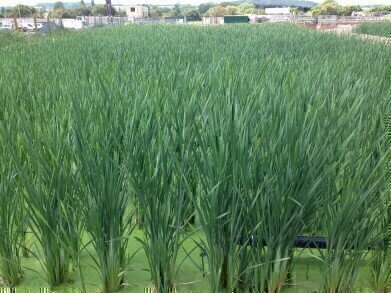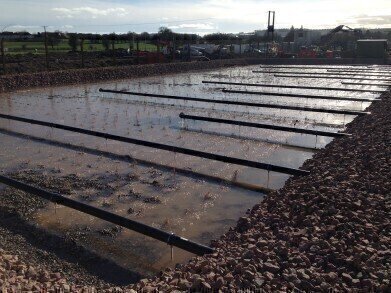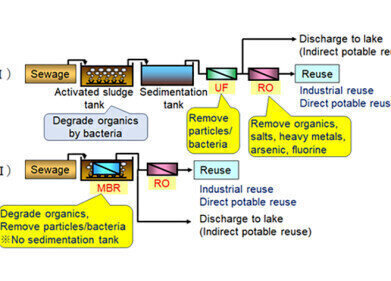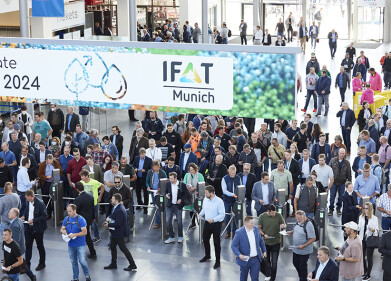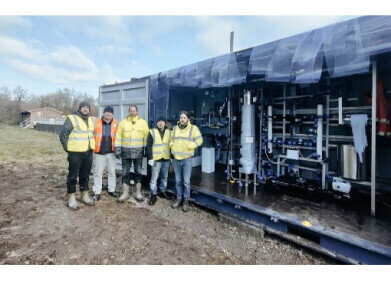Water/Wastewater
Wetland Technology– A First for Welsh Water
Nov 14 2014
Welsh Water has invested in its first aerated reed bed fitted with Forced Bed Aeration (FBA) technology to treat sewage at one of its treatment works.
Welsh Water and its framework partner - Imtech Process - have worked with ARM Reed Beds to upgrade two of the four existing reed beds that formed part of the treatment process at Kingstone and Madley Wastewater Treatment Works in Herefordshire.
Back in 1987 Welsh Water commissioned the original installation of four parallel horizontal flow passive reed beds to provide final polishing to the effluent prior to discharge to the local watercourse. During the past 25 years these had become clogged with plant growth ad sludge deposits resulting in the short circuiting of flow across the reed beds, reducing treatment capacity.
Whilst refurbishment offered a short-term solution, to help meet discharge consent of 1 mg/L of ammonia set by the Environment Agency, two of the reed beds have been retrofitted with FBA™ technology to increase treatment capacity to cope with the demands of an increasing population and enhance the quality of discharged effluent.
“An ever increasing population coupled with tighter discharge consents meant that the treatment capacity of the existing system was not suitable for the changing demographic. By upgrading and retrofitting FBATM to two of the existing reed beds we have increased oxygen availability - essential for the removal of BOD and ammonia and all within the existing footprint,” says Owain Picton, project manager at Imtech.
“By working closely with ARM we were able to utilise the existing system to create a bespoke solution which met Welsh Water’s exact requirements. Delivered within just four months we were also able to keep the site fully operational which was vital.
“The use of FBA™ technology means Welsh Water is now able to meet the tight ammonia and BOD consents with ease, an integral factor in complying with the regulations set out by the Environment Agency,” added Owain.
Since its construction in the 1940s, the works has been modified on several occasions to help meet regulatory requirements and the more recent ammonia consent of 1 mg/L. The new system was designed based on the upstream process consisting of a primary settlement tank, trickling filters and humus tank. Effluent from the existing and newly built system is now fed into a new direction chamber which feeds into the retrofitted reed beds.
ARM director, Tori Sellers, says: “Whilst Kingstone and Madley had been operating effectively, the increase in the volume of effluent requiring treatment meant a more efficient system was required. Passive systems have limitations but when retrofitted with FBA™ technology they can provide the efficiency required as it increases treatment capability by up to 15 times that of a traditional reed bed all within the same footprint of the existing infrastructure.
“Once installed, aerated reed bed systems require very little power to operate and can reduce OPEX and CAPEX costs.”
Events
Apr 22 2024 Hannover, Germany
Apr 23 2024 Kuala Lumpur, Malaysia
Apr 24 2024 Sao Paulo, Brasil
May 05 2024 Seville, Spain
May 13 2024 Munich, Germany
